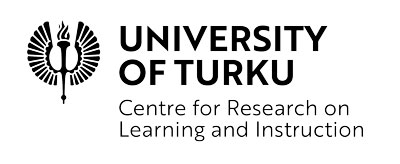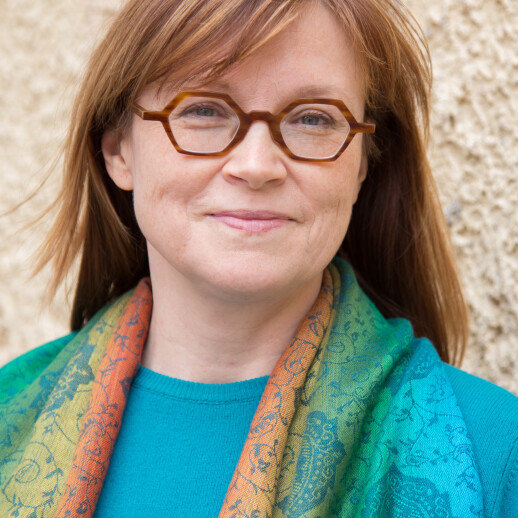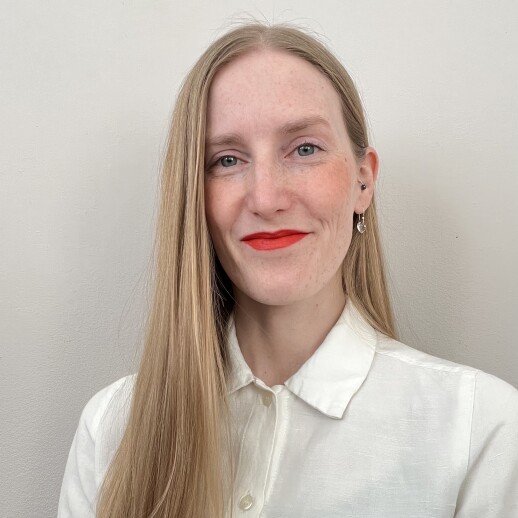Centre for Research on Learning and Instruction (CERLI)
High-level international research at the Centre for Research on Learning and Instruction (CERLI) has its scope on the whole life span.

CERLI is a research community of the Department of Education, which includes all department staff (including fellowship researchers and visiting researchers) as well as teaching staff in Teacher Training Schools.
CERLI offers a wide range of national and international collaboration possibilities in the field of research on learning and instruction. We arrange seminars, reading circles, and writing workshops.
CERLI is part of the Department of Teacher Education.
Get to know our research themes and research groups
The members of the research group have interests connected to themes of historical, societal and cultural education. These include, for example, education for democratic citizenship; human rights education; culturally responsible education; education for culturally and socially sustainable future; moral education; history education, social science education, and religious education. Questions of teaching and learning in these fields are researched in the group from the perspective of education of citizens in different age groups, from early education to adult education, and in the context for formal, non-formal and informal learning. The group welcomes different approaches and research traditions, from theoretical and historical studies to empirical and design-based research. The keywords include society, culture, history, citizenship, democracy, human rights, identity, and ethics. The research in the group is linked to educational sciences but with close connections to social sciences, historical research, study of religion, and philosophy. The group is a platform for preparing and processing research papers and publications, conference presentations, and research project plans. It functions as a a study circle and in ways that the members consider productive and fruitful. The group also gives support to students who are interested in the themes of the group and would like to develop their ideas for a doctoral dissertation research project.
Contact person: Jan Löfström
Members of the research group:
Mikko Kainulainen
Lauri Kemppinen
Anuleena Kimanen
Jarmo Kinos
Miikka Korventausta
Jan Löfström
Marjaana Puurtinen
Leif Rosqvist
Tiina Rytkölä
Johanna Tigert
Juha Vänttinen
Early childhood education
The research group explores new evidence-based ways of supporting early education teachers’ professional development. At present, there is little scientific evidence that early childhood education optimally support learning and development, especially among children who represent culturally and linguistically diverse home backgrounds.
Our main objective is to improve pedagogical sensitivity across multiple interactional settings with children in order to promote their language, social and emotional competence years before school entry in collaboration with the parents. This will be strengthened by supporting leadership and effective collaboration among multiprofessional team members for learning practice-oriented scientific knowledge that specifically target key developmental domains.
Drawing on mixed methods research, we integrate various theoretical paradigms and gold standard methods (observations, self-reports, and interviews) to assess professional competence and child development.
Contact person: Sara Sintonen
Members of the research group:
Juli-Anna Aerila
Satu Laitinen
Janne Lepola
Anitta Melasalmi
Meri Pihanperä
Inkeri Ruokonen
Timo Ruusuvirta
Maarit Silvén
Sara Sintonen
Anne Sorariutta
Wenwen Yang
Education integrating art, craft, design, and technology
The research group investigates art, craft, design and technology as explorative, experiential and embodied design and engineering processes and creation of culture in technologically rich formal and informal learning and working environments. The discipline of Craft, Design and Technology Education has several SIG-groups:
- Pedagogical and didactical research in CDT education from early childhood, primary, secondary and adult education to higher education
- Innovation pedagogy and eco-social design research
- Holistic craft and design in the context of culture creation, wellbeing and action competence
- Enterprise education research
- Research on safety culture and safety education in learning and working environments
- Research on CDT education as a discipline and a context of pre- and in-service teacher training
- For more and detailed information please visit www.utu.fi/CDTE
Doctoral seminar on the first Tuesday of a month during terms in Rauma Campus. Operating language is Finnish, English also possible. An option to join on-line. Chair of the seminar Dr. Eila Lindfors, Professor in Craft, Design and Technology education. For more information please contact university lecturer Virpi Yliverronen, virpi.yliverronen@utu.fi
Contact person: Virpi Yliverronen
Members of the research group:
Satu Grönman
Mikko Huhtala
Tellervo Härkki
Juha Jaatinen
Arttu Korkeaniemi
Rauli Lehtinen
Miika Leino
Jaana Lepistö
Eila Lindfors
Jussi-Pekka Peltola
Matti Pirttimaa
Mikko Puolitaival
Tiina Ranta
Marja-Leena Rönkkö
Sari Saarnilahti
Brita Somerkoski
Matti Waitinen
Virpi Yliverronen
Craft, Design and Technology (CDT) teacher education in the University of Turku
The research constitutes a work package within the project Fostering Finnish Science Capital (FINSCI), which is funded by the Strategic Research Council (SRC) established within the Academy of Finland. FINSCI is part of the council’s Information literacy and evidence-informed decision-making (LITERACY) program, which seeks solutions to how information can be used critically and constructively to support individual and societal decision-making and activities.
The research team led by deputy PI Mirjamaija Mikkilä-Erdmann, professor of educational science, focuses on the learning of complicated phenomena in natural sciences and how to support science-based decision-making in daily life. Instructional interventions are used to support science literacy among different age groups of learners from primary education to high school. University students will be invited to participate in a follow-up study of the changes in science capital, science literacy, and agency during their university studies. The interconnections of science capital, science literacy, and decision-making are investigated in all age-groups. The work package uses a multi-method approach.
The work package brings theory and methodology from research in learning complex phenomena as well as learner agency.
Contact person: Mirjamaija Mikkilä-Erdmann
Higher education, professional development and workplace learning
The research group of higher education, professional development and workplace learning focuses on exploring teaching and learning in the contexts of educational institutes and workplaces. The overall aim of the research is to develop conditions for successful teaching and learning in universities and other HE institutions as well as understanding how to support professional development at work.
Firstly, the research focuses on teaching and learning processes (i.e. approaches to teaching and learning, regulation of teaching and learning, conceptual understanding) and on the interaction between them. Secondly, the focus is on investigating the teaching-learning environments and their effects on expertise development. Thirdly, the aim is to study collegial action at workplaces and professional communities.
The group adopts a variety of diverse methodologies, combining self-report data (interviews, questionnaires) with objective online measures, such as physiological data (electrodermal activity) and eye-tracking utilizing also virtual reality environments, as well as using methodological tools developed for units of analysis at collegial level, such as social network analysis. Regarding professional communities and workplace learning, the main focus is on academic professions.
Contact person: Mari Murtonen & Tuire Palonen
Members of the research group:
Heini Ahonen
Erkki Anto
Kalypso Filippou
Satu Hakanurmi
Mirva Heikkilä
Laura Helle
Tarja-Riitta Hurme
Tuike Iiskala
Mirjamaija Mikkilä-Erdmann
Mari Murtonen
Siru Myllykoski-Laine
Trang Nguyen
Hanna Nori (also CELE)
Tuire Palonen
Maikki Pouta
Marjaana Puurtinen
Jere Riekkinen
Emmi Saariaho-Räsänen
Heidi Salmento
Ville Salonen
Ilona Södervik
Henna Vilppu
Henna Virtanen
Erika Österholm
Language learning, teaching and linguistic diversity in education
The research group focuses on language learning and teaching, (multi)literacy, and linguistic and cultural diversity in different educational contexts. The research themes include foreign language learning, early foreign language education, bilingual education (immersion and CLIL), multilingualism, language and literature education, linguistically responsive and culturally sustaining teaching, as well as learning processes in academically and culturally diverse classrooms.
The research group aims to understand practices and processes involved in the learning of first, second, and third/foreign/additional language, developing (multi)literacy, and working with multilingual and culturally diverse groups, and covering the points of view of teachers, learners, and educators. The research studies provide information on how to promote inclusion, equality, and the learning of language learners. Further, the studies shed light on how to develop teacher education and innovative pedagogical practices.
Typically, research studies in the field of applied linguistics utilise mixed methods and interdisciplinary approaches, combining qualitative and quantitative methods. The emphasis is often on the latter: Data collection and analysis methods include conversation analysis, thematic analysis, case studies, visual narratives, classroom-based research, action research, observations, interviews, and questionnaires. The members of the group are researchers and doctoral candidates.
Contact person: Maria Tyrer
Members of the research group:
Juli-Anna Aerila
Pilvi Heinonen
Riia Kivimäki
Kaisa Korpinen
Sara Routarinne
Roosa Suomalainen
Maria Tyrer
Learning in interaction
This research group focuses on collaborative, supportive and individual processes of learning in interaction. Interactions are understood as dynamic, intertwined and systemic processes. Exploring these processes requires developing innovative methodological and analytical approaches besides applying traditional ones.
The theme combines cognitive, metacognitive, motivational, emotional, as well as social and cultural aspects of interaction in learning.The aim is to understand learning during interaction in communities, classrooms, small groups, dyads and individuals or in combination of these. The research designs emphasize micro-level phenomena without excluding large-scale studies. This group aims at scrutinizing interaction in varying learning contexts, such as different school subjects, different levels of education and learning-at-work. The participants of the studies represent different skill levels and age groups ranging from young children and school-aged learners to adults.
The overarching mission of this group is to crystallize interaction patterns beneficial for the development of skills and quality of learning.
Contact person: Tuike Iiskala and Pilvi Heinonen
Members of the research group:
Tiina Annevirta
Anna Eskola
Olli-Pekka Heinimäki
Pilvi Heinonen
Tarja-Riitta Hurme
Tuike Iiskala
Anu Kajamies
Satu Laitinen
Janne Lepola
Jenny Marttila
Mari Murtonen
Iina Männikkö
Marita Neitola
Tuire Palonen
Maikki Pouta
Sara Routarinne
Anne-Elina Salo
Maarit Silvén
Marja Vauras
Erika Österholm
Mathematical learning
Research Group for Mathematics Learning and Instruction is a collection of researchers investigating various aspects of mathematical learning and instruction from early childhood to adulthood.
A core feature of the group is combining expertise across the spectrum of educational and psychological research. From large-scale professional development courses to neuroimaging, the group aims to examine the learning and teaching processes that influence mathematical development and look for empirically validated means to improve learning for all.
The group’s motto “Cultivating Future Mathematical Minds” embodies their approach to mathematics education as one that aims to seek out new models for approaching instruction and new indicators of success in the domain. A strong emphasis is placed on spontaneous mathematical focusing tendencies, expanding mathematical instruction beyond formal learning settings and supporting flexible mathematical knowledge and skills that can be applied in novel situations.
Contact person
Members of the research group:
Phuong Bui
Hilma Halme
Minna Hannula-Sormunen
Heidi Harju
Ciğdem Haser
Sanni Kankaanpää
Tomi Kärki
Erno Lehtinen
Janne Lepola
Katri Luomaniemi
Jake McMullen
Saku Määttä
Cristina Nanu
Anne Sorariutta
Jo Van Hoof
Sustainability education and sustainable pedagogies
One of the goals for the future is a sustainable society reached through a process called sustainable development. The concept of sustainable development is based on the concept of socio-economic development in line with ecological constraints, the concept of needs - redistribution of resources to ensure the quality of life for all - and the concept of future generations.
Sustainability education provides learning, training, and practical experience, in both formal and non-formal settings, that foster personal development, community involvement, and action for change in our human and natural worlds. The education for sustainable development and sustainability are ways getting people understand the complexity of the environment and to adapt their activities and to pursue their development in ways which are harmonious with the environment. Education at all levels (e.g. school, universities) plays a crucial role in constructing sustainable societies. Learning and research innovations in Life Sciences Education are essential to reach this goal.
The research in this study group focuses on student teachers’ and on students’ awareness, conceptions and concepts of human environmental relationships in domains of environmental or ecological, social, cultural and economic sustainability.
Connection to the Thematic Group of "Biodiversity and Sustainability" of the University of Turku
https://www.utu.fi/en/research/thematic-collaborations-in-research
Contact person: Eija Yli-Panula
Members of the research group:
Celine Arzel
Johanna Kortessalo-Ainasoja
Ville Mankki
Eila Matikainen
Sanna Mäki
Eija Yli-Panula
Anne Pellikka
In collaboration with:
Isabel Banos-Gonzalez, Patricia Esteve, Ana Ruiz, Magdalena Valverde, Universidad de Murcia, Espana
Eila Jeronen, University of Oulu
Christel Persson, University of Kristianstad, Sweden
Alena Sousa de Melo, Universidade Estadual da Paraiba (UEPB), Brazil
Ilona Södervik, University of Helsinki
Teaching and teacher education
The research group gathers together researchers who are interested in investigating teaching and teacher education. Teacher education is seen as a continuum where the integration of research and practice at all stages of teachers’ professional learning is emphasized.
Our aim is to develop understanding of the processes of professional learning in order to provide effective guidance for pre-service and in–service teachers and teacher educators who are seeking to strengthen their practice at all career stages. Other important contributions relate to research on teaching practice in collaboration with the Department’s Teacher Training Schools in Turku and Rauma.
The research group highlights teachers’ capacities to adapt changing school contexts, curricula and policy demands. Many theoretical stances are welcomed and both quantitative and qualitative methods are applied diversely.
Contact person: Mirva Heikkilä
Members of the research group:
Päivi Granö
Mirva Heikkilä
Anni Holmström
Jukka Husu
Tuike Iiskala
Anna-Maija Katajisto
Teija Koskela
Marko Lähteenmäki
Ville Mankki
Anitta Melasalmi
Mirjamaija Mikkilä-Erdmann
Mari Murtonen
Iina Männikkö
Mirjam Rasmus
Jaanet Salminen
Brita Somerkoski
Mikko Tiilikainen
Serja Turunen
Henna Vilppu
Technology enhanced learning and science education
Research focusing on technology enhanced learning environments covers age groups from primary education to adult education; in general focusing on digital pedagogy, and in particular on motivation, interest, and teaching and learning in digital learning environments.
The general focus of the research on science has been on interactive learning environments (e.g. simulations). Individual studies and projects have focused on the role of pedagogy in these interactive learning settings, for instance between different types of simulations (more concrete or abstract), different pedagogical support (level of guidance), measuring effects on learning outcomes and interactions within and between settings and motivational variables.
Contact person: Marjaana Veermans
Members of the research group:
Anna-Reetta Aalto
Jussi-Pekka Järvinen
Miikka Korventausta
Maiju Kyyhkynen
Aleksi Lahti
Lauri Lehtonen
Sanna Rantanen
Koen Veermans
Marjaana Veermans
The research group examines the construction of participation, well-being and communality in different growth, development and learning communities. Interests include for example 1) physiological, psychological and social mechanisms related to loneliness and ostracism and their developmental continua, 2) the multidisciplinary cooperation and interaction skills of different service systems as a continuum that strengthens the well-being of children, young people and families, 3) hearing the voices of vulnerable children, young people and families, and 4) influencing inequality development and highlighting the value of diversity through various intervention and prevention methods. The research group is strongly multidisciplinary and the framework consists of things outlined in the Convention on the Rights of the Child and the National Child Strategy, especially those highlighting participation, agency, and the uniqueness of childhood and youth and the significance of silent voices.
Contact person: Niina Junttila ja Tiina Annevirta
Members of the research group:
Tiina Annevirta
Kirsi Heikinheimo
Anni Holmström
Niina Junttila
Miia Laasanen
Nina Mellenius
Venla Panula
Jaanet Salminen
Pamela-Zoe Topalli
Saija Westerlund-Cook
In collaboration with:
Linnea Karlsson (TY)
Noona Kiuru (JY)
Marja-Kristiina Lerkkanen (JY)
Eija Pakarinen (JY)
Tiina Ristikari (ITLA)
Katariina Salmela-Aro (HY)
Matti Sarvimäki (Aalto)


